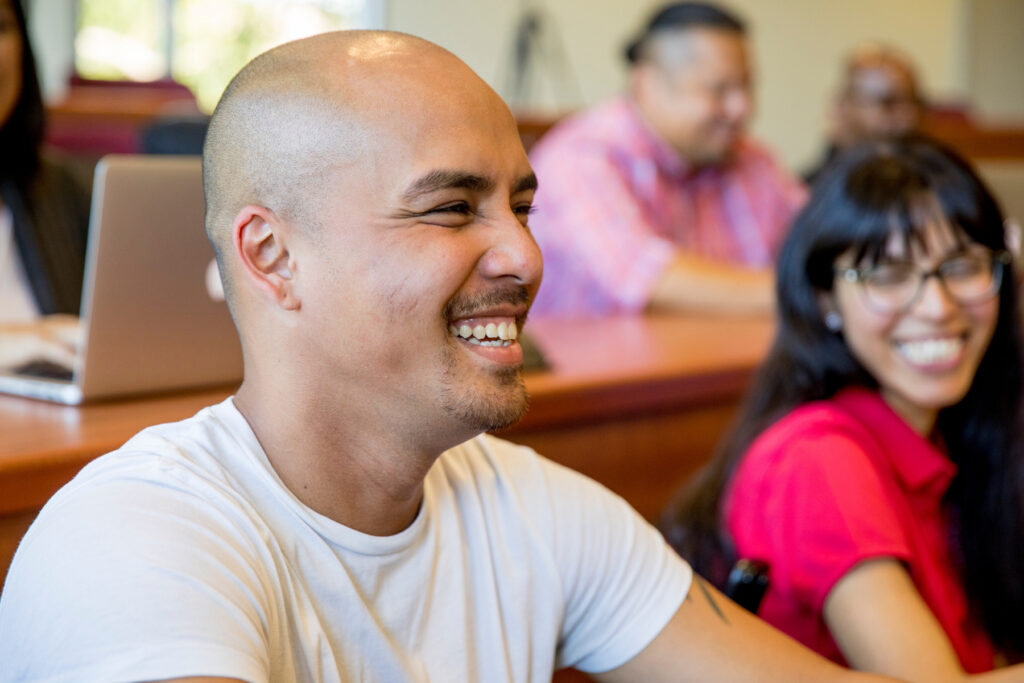
Who Gets Pell Grants?
When a 28-year government ban on giving Pell Grants to incarcerated people ends in July next year, 463,000 more people behind bars will automatically qualify for college financial aid. Student support professionals want to be ready.
To help them, on March 31, the Council for Opportunity in Education teamed up with the non-profit Vera Institute for Justice to hold a webinar titled, “How to Support Former and Current Incarcerated Students through Pre & Post-Secondary Education.” Nearly 200 people from across the country joined the webinar, many TRIO professionals. The webinar featured panelists who already work with incarcerated and formerly imprisoned people.
“Two years ago, when the world shut down, I think the Department of Corrections shut down even tighter. We could no longer get to the population we had worked with for over 30 years.”—Stephanie Cruz
“We want to work with them, not just while they are in the Department of Corrections, but when they are released,” said panelist Stephanie Cruz. She is the director of the Equal Opportunity Center and Student Support Services for the Community College of Rhode Island. Her program has worked with incarcerated people since she started working as a TRIO professional in the 1990s, maintaining relationships with correctional facilities even after the ban on Pell grants began.
But the COVID-19 pandemic created barriers. “Two years ago, when the world shut down, I think the Department of Corrections shut down even tighter. We could no longer get to the population we had worked with for over 30 years.”
Fortunately, her program became a pilot program, re-introducing Pell Grants in prison before the ban lifts next year. When that date comes, she said, “We are ready and prepared to work hard with the population that so needs and deserves it.”
What is the Second Chance Pell Pilot Program?
Panelist James Monteiro, founder, and director of the Re-entry Campus Program of Providence, R.I., attested to the good that TRIO programs could do behind prison walls. Monteiro recalled that “I was always in lockup when he was young. I was young, dumb, and thought I had everything to prove.”
Because he was in prison during the 1990s, when Pell grants were still available to the incarcerated, he completed his associate degree in prison. “Dreams go deferred,” Monteiro said, but “EOC gave me my dreams back.”
“Formerly incarcerated students don’t walk around advertising” they were once imprisoned, said Joe Louis Hernandez of Mt. San Antonio College Rising Scholars Program. Yet they still need services, and TRIO professionals should think about ways to make it easier to encourage this population to get in contact with their programs.
A formerly incarcerated person, Hernandez said that the college where he now works approved adding a carefully worded statement to the program application. Instead of asking directly whether an applicant was formerly incarcerated, the application states that there is a Rising Scholars Program to serve formerly incarcerated individuals and asks whether applicants students identify in that manner. “It’s not asking, ‘are you formerly incarcerated?’ It’s asking, ‘hey, we have services for you. Can you use them?'”
Since the wording changed in the fall, Hernandez said, about 1,000 applicants have checked the “yes” box, and his program is trying to follow up with all of them.
“Dreams go deferred, but EOC gave me my dreams back”—James Monteiro
The Vera Institute for Justice has strong connections with all the corrections departments, facilitator Allan Wachendorfer said. He is a senior program associate for the Vera Institute. He said that if any student support professional has not been able to reach the right person in corrections to support their program’s outreach efforts, Vera staff could help make those contacts.
“I want to reiterate the importance of those relationships across the board,” he said.
Maureen Hoyler, the president of the Council on Opportunity in Education, said that COE stood ready to help prisons and prison officials figure out what TRIO program is best for their incarcerated individuals. “We know how much potential there is in incarcerated or formerly incarcerated individuals, and to waste their potential is a tragedy,” Hoyler said. “We’ve got a lot of work to do.”
Wachendorfer agreed, saying, “This is just the beginning of this conversation.”